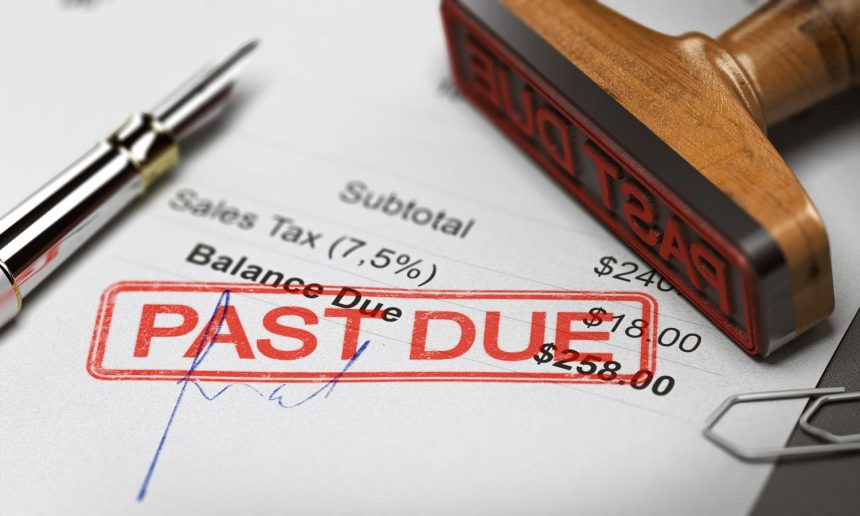If you have federal student loans, you know that payments are due again after a three year hiatus. Interest is also accruing on federal student loans after being fixed at 0% for over three years, and not everyone is happy about it, either.
The fact is, not having federal student loans payments since early 2020 has been a financial lifesaver for people who have experienced a drop in income and other financial hardships. Other people have just become accustomed to not making student loan payments and have started to spend that money elsewhere.
But if you’ve been watching any social media lately, there have been countless viral videos expressing the consequences of what happens if you don’t pay your student loans.
While the main consequences of non-payment will take at least one year to come to fruition, trust me when I say that ignoring federal student loans is the last thing you want to do.
Federal On-Ramp Period For Student Loans
First, the Biden administration announced a 12-month “on-ramp” period that will give borrowers 12 months to get on track with payments without hurting their credit or facing other major hardships. Borrowers who miss monthly payments during this time “are not considered delinquent, reported to credit bureaus, placed in default, or referred to debt collection agencies,” reads a White House fact sheet on the plan.
This means that you can, in fact, skip federal student loan payments for another 12 months just to see what happens. However, interest will still accrue on your loans during this time, so you’ll end this period owing more than when you started. This may not be a huge deal if your student loan balance is relatively small, but it could be financially catastrophic if you owe a large federal student loan balance and your interest rate is high.
Even with this on-ramp period, you shouldn’t skip your student loan payments on purpose.
Consequences After The On-Ramp Period
There’s always the chance the Biden Administration or the next President will extend the on-ramp period beyond 12 months, or that Congress will pass some sort of student loan forgiveness plan. However, both of these scenarios are unlikely, so you should know about the real consequences that come into play if you refuse to make federal student loan payments after the on-ramp period ends in October of 2024.
Here’s what you can expect if you stop paying federal student loans:
Credit Score Damage
When a student loan payment is missed (after the on-ramp period), it becomes delinquent within the first day of non-payment. From there, when federal student loans are considered in default depends on the type of loan.
Either way, late student loan payments are ultimately reported to the three credit bureaus — Experian, Equifax
EFX
Wage Garnishment
Eventually, the federal government can automatically garnish your wages to make up for unpaid federal student loan payments. This means your take-home pay from your job will be lower, and that your employer or someone employed by your company will know about your loans in default.
Furthermore, this can happen without a court order, unlike private student loans which must file a lawsuit against your first.
Treasury Offset
Treasury offset is another consequence of nonpayment that can come into play with federal student loans. This takes place when a payment from the U.S. government (like your tax refund) is reduced or stopped to pay off outstanding federal student loan payments.
If you’re planning on getting a tax return, you can kiss it goodbye if you’re in default on your student loans.
More Consequences
Also know that skipping payments on federal student loans means you are no longer eligible for more federal financial aid, which can be a problem if you want to go back to school. You also lose out on the chance to apply for deferment or forbearance, or to even switch your repayment plan.
The company that holds your loans can also take you to court, in which case you can be on the hook for various court fees and legal fees.
Don’t Stop Paying — Do This Instead
Not making federal student loan payments during the on-ramp period is a bad idea since interest will continue adding to your loan balance. After that, the consequences get even worse, and you could be subject to considerable credit score damage, wage garnishment, seizure of your tax refunds and more.
The best thing to do is to get ahead of your issues instead of not making payments, and you can do this by making sure you’re on the right repayment plan for your needs. You can (and should) look into income-driven repayment plans that base your federal student loan payment on how much you earn and your family size. In some cases, income-driven repayment plans can help you get your federal student loan payment to $0 if your income is low enough.
This is especially true with Biden’s new SAVE repayment plan, which has users pay just 5% of their discretionary income toward federal student loans. This plan also has a higher income threshold to qualify for $0 monthly payments. In fact, the SAVE plan increases the income exemption for loan payments from 150% to 225% of the federal poverty limit. Even for those who earn more than 225% of the federal poverty limit, government data shows the average savings will reach at least $1,000 for borrowers with federal student loans when compared to other income-driven plans.
Perhaps more importantly, unpaid interest does not get added to the loan amount with the SAVE plan. This is crucial for borrowers with $0 monthly payments and anyone else whose monthly payment is less than the interest their loans would otherwise accrue each month. Federal student loan borrowers can sign up for the new SAVE plan by visiting StudentAid.gov/SAVE.
Read the full article here


